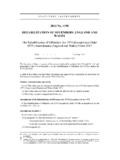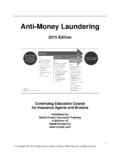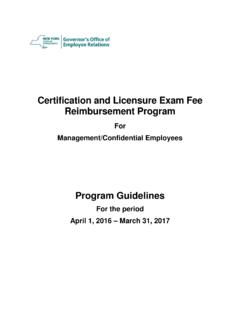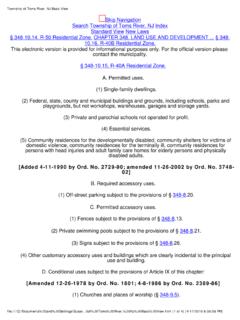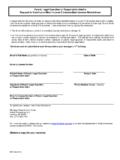Transcription of IN THE EQUALITY COURT, JOHANNESBURG CASE …
1 REPUBLIC OF SOUTH AFRICAIN THE EQUALITY court , JOHANNESBURGCASE NO: 20968/2010 DATE:12/09/2011 REPORTABLEIn the matter between:AFRI-FORUM First ComplainantTAU SA Second ComplainantandJULIUS SELLO MALEMA First RespondentAFRICAN NATIONAL CONGRESS Second ComplainantVERENIGING VAN REGSLUI VIR AFRIKAANS Amicus Curiae_____ J U D G M E N T_____ (1)REPORTABLE: YES / NO (2)OF INTEREST TO OTHER JUDGES: YES/NO (3)REVISED.. DATE SIGNATURELAMONT, J:[1] This is a matter which comes before me in the EQUALITY court . It concerns social conflict arising out of alleged hate speech.
2 To understand the social interaction of the groups within society it is necessary to briefly set out some historical facts. The legislation is initially set out in general terms to provide the legislative foundation within which the hate speech legislation BOERS[2] Several centuries ago people commenced and since then have continued emigrating to the Republic from Europe and elsewhere. They brought with them their languages, cultures, moralities, laws and customs. Immigrants from Europe gained control of the country.
3 They were able to and did to a large extent impose the norms customs and morality of their former societies upon other inhabitants of the Republic. The recognised laws in the Republic became their laws. [3] Their morality did not recognize others as having rights of any significance. They proceeded to trample upon the rights of others and seize control of the assets of the Republic for themselves. [4] A faction of the immigrants who had their origin in Holland, France and Germany banded together at a point in time in consequence of conflict between European factions.
4 This faction (known as Boers) in the pursuit of 2freedom left the community of European settlers and went to live on their own. They established independent republics in which it was proposed by them that they would express and pursue their economic, political and social ambitions. Those republics at a point in time were compelled to surrender to European forces. Notwithstanding their defeat, the zeal of that band and their ideal of pursuing their freedom remained intact. The Boers were able to seize control after the elections held during the late 1940 s and today are identified as a community or set of persons calling themselves Boere or Afrikaners.
5 [5] Demonstrating excessive zeal and rigid in their demands for freedom the Boere pursued a policy of apartheid so as to maintain their political freedom. That policy at the time the community commenced practising it had deep-seated longstanding recognition in the Republic. Ever since the first immigrants had arrived from Europe they had had no regard for the rights, social, political, economic or otherwise of other persons inhabiting the Republic. The Boer numbers were fewer than those of other communities. They would have been defeated at democratically held elections.
6 Apartheid was the only way to retain control and power. This policy was pursued without regard for the growing clamour worldwide that it be discontinued and that the rights of others be recognised. It was pursued ruthlessly and with violence sanctioned by the regime. The violence involved violence to dignity, freedom and economic standing of people. Every facet of life was affected and tainted. Its pursuit involved the conferring of privileges upon other Boere. Ultimately the regime became identified with the Boere who virtually, exclusively, controlled the implementation of the ANC[6] During the early part of the twentieth century, members of the oppressed groups began banding together.
7 They banded together under the auspices of organisations which broadly speaking became united as the present African National Congress (ANC). [7] The ANC represented what has colloquially been referred to as the suppressed majority. The suppressed majority largely comprised black persons who were disenfranchised politically; economically stripped of wealth and subjected to ill-treatment at the hands of the government of the day.[8] The policy of the ANC originally was non-violent. With the passage of time and the increasing frustration of its members, the ANC eventually formulated a policy which included violence as an option.
8 At all times the policy was that, as far as possible, the violence be directed to the actual oppressor (the physical manifestation of the government) and that civilians be spared attack. The members of the ANC, who were involved in violence, euphemistically referred to it as the struggle. The members of the ANC who participated in the struggle were drawn from all walks of life and comprised civilians. There was no known army wearing a uniform. In consequence of this, the government directed its attacks against civilians. Not all civilians were however participants in the struggle.
9 Any member of the oppressed group was perceived as the enemy by the government. With the passage of time, the frustrations and anger of persons belonging to the suppressed majority, 4the members of the ANC and non-combatants who suffered attacks, increased.[9]In Dutoit v Minister of Safety and Security 2010 (1) SACR 1 para 17the period was described as a time when there was a deeply divided society characterised by gross violations of fundamental human rights. Langa CJ referred to the words of Mahomed DP in Azapo v President of the RSA [1996] ZA CC 16. Most of the acts of brutality and torture which have taken place have occurred during an era in which neither the laws which permitted the incarceration of persons or the investigation of crimes, nor the methods and the culture which informed such investigations, were easily open to public investigation, verification and correction.
10 Much of what transpired in this shameful period is shrouded in secrecy and not easily capable of objective demonstration and proof. Loved ones have disappeared, sometimes mysteriously and most of them no longer survive to tell their tales. Others have had their freedom invaded, their dignity assaulted or their reputations tarnished by grossly unfair imputations hurled in the fire and the cross-fire of a deep and wounding obscurity in our history. Records are not easily accessible; witnesses are often unknown, dead, unavailable or unwilling.











